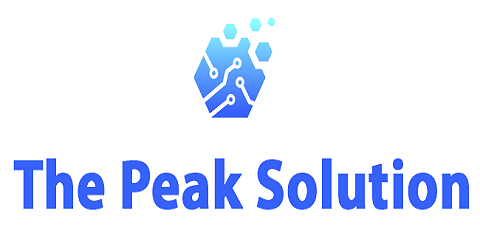In recent years, data has evolved into the most valuable asset for businesses, shaping decisions and driving innovation across industries. Traditionally, the power of transforming raw data into meaningful insights rested in the hands of professional data scientists. However, as organisations increasingly embrace data-driven strategies, a new trend is redefining analytics — the rise of the citizen data scientist.
Citizen data scientists are professionals who may not have deep technical backgrounds but leverage intuitive tools, automation, and AI-powered platforms to extract insights and make informed business decisions. They represent the democratisation of analytics, allowing employees across departments to participate in solving data challenges without relying solely on specialised experts.
For those considering a data scientist course in Mumbai, understanding this evolving landscape is essential to staying relevant in a rapidly changing field.
Why the Citizen Data Scientist Movement Matters
In the past, analytics was the exclusive domain of highly skilled data scientists who combined advanced programming knowledge, statistical expertise, and business acumen. While these professionals remain critical, the growing demand for data-driven decisions has created a skills gap. Businesses need more people capable of working with data, and citizen data scientists help bridge that gap.
Modern analytics platforms now offer no-code and low-code tools like Power BI, Tableau, and Google Looker Studio. These tools enable non-technical professionals to:
- Build dashboards and reports quickly
- Perform predictive and diagnostic analytics
- Visualise complex datasets with drag-and-drop interfaces
- Integrate AI-driven insights into business workflows
By empowering employees with accessible tools, organisations reduce dependency on traditional data teams, speeding up decision-making while fostering a culture of analytics across all functions.
The Tools Powering the Citizen Data Scientist Revolution
Technology is the driving force behind this shift. Advanced platforms and AI-powered solutions are democratising access to analytics:
- Automated Machine Learning (AutoML): Simplifies model-building by automating data preparation, feature selection, and evaluation.
- Business Intelligence (BI) Dashboards: Tools like Power BI and Tableau provide intuitive visual analytics for decision-makers.
- AI-Assisted Platforms: Natural language processing allows users to query data conversationally, making insights more accessible.
- Cloud-Based Analytics Solutions: Scalable environments enable teams to collaborate on shared datasets without complex infrastructure.
Together, these tools eliminate traditional barriers and encourage participation from professionals across marketing, operations, sales, and finance teams.
Citizen Data Scientists and Professional Data Scientists: A Collaborative Future
While citizen data scientists can perform powerful analytics independently, their role complements — rather than replaces — traditional data scientists.
- Citizen data scientists focus on business-specific insights, using intuitive tools to handle structured problems quickly.
- Professional data scientists tackle complex modelling, manage large-scale datasets, and build advanced algorithms requiring deep expertise.
This collaboration enhances overall organisational efficiency. Data scientists can dedicate more time to advanced analytics and innovation, while citizen data scientists handle day-to-day insights generation, improving agility in business decisions.
For learners undertaking a data scientist course in Mumbai, developing skills to guide, mentor, and collaborate with citizen data scientists is becoming a core competency in modern enterprises.
Challenges in the Democratisation of Analytics
While empowering non-technical professionals with analytics tools offers significant advantages, it also introduces risks if not managed carefully:
- Data Quality Issues: Inexperienced users may draw incorrect insights from incomplete or unverified data.
- Security Concerns: Broader data access requires stronger governance to avoid breaches and misuse.
- Over-Reliance on Automation: While tools simplify analytics, critical thinking is still essential to validate results.
- Integration Gaps: Without proper coordination, teams risk creating fragmented analytics strategies across departments.
These challenges make data governance a crucial aspect of democratised analytics. Organisations must establish policies, frameworks, and quality checks to ensure that insights are accurate and secure.
The Future of Analytics: An Inclusive Ecosystem
The rise of the citizen data scientist is not just a technological trend — it represents a cultural transformation. By enabling employees at all levels to engage with data, businesses are fostering an environment where insights are no longer locked within specialist teams.
In the coming years, we can expect:
- Greater adoption of AI-driven analytics platforms
- Seamless integration between business functions and data science teams
- Upskilling programmes focused on data literacy across the workforce
- Increased demand for professionals capable of managing hybrid analytics ecosystems
Organisations that invest in both professional data scientists and citizen data scientists will enjoy faster decision cycles, stronger insights, and greater competitive advantage.
The democratisation of analytics is reshaping how organisations leverage data to drive growth and innovation. Citizen data scientists are empowering businesses to become more agile, efficient, and inclusive in their decision-making processes.










